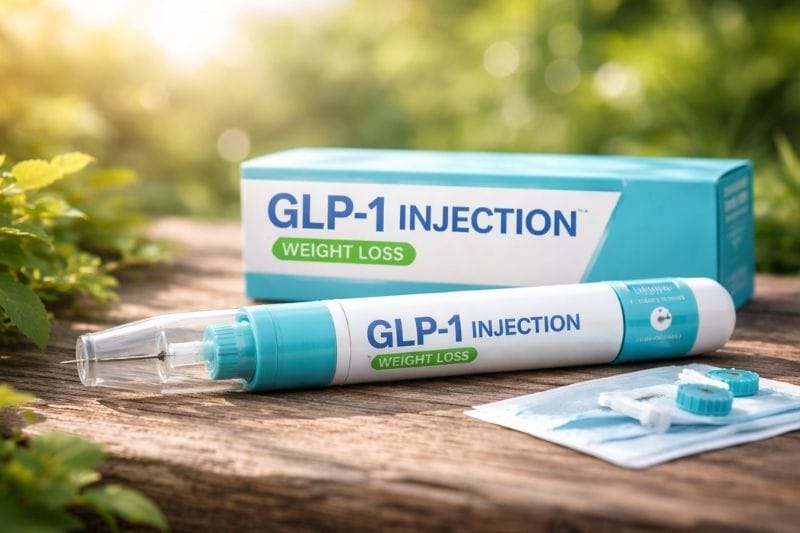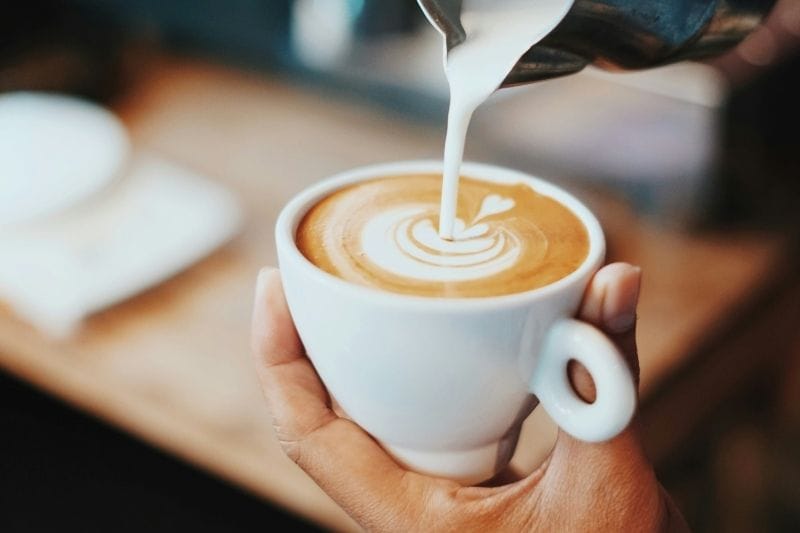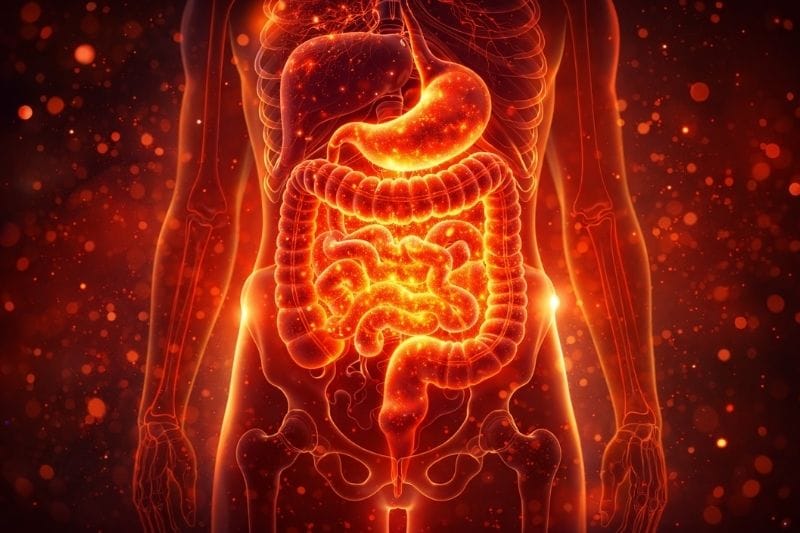Your weight can swing by up to 1-2 kg during your menstrual cycle due to water retention and hormonal changes. Yes, your period can affect weight loss progress because these hormonal shifts change water balance in your body – but it is not fat gain. This blog will show you why this happens and how to work with your natural rhythm for better progress.
Blogging about this topic does fill me with some fear that I will come across like a Mansplaining idiot! But this has come up three times this week with female clients, so here goes…
The Menstrual Cycle and Scale Weight
Here are the key stages of the menstrual cycle and what they mean for your scale weight:
a) Menstrual Phase (About Days 1-5): This is when you start your period. In the early days of this phase, you may notice your weight decreasing after it possibly went up in the days just before your period began. This change is due to your body releasing the water it held onto.
b) Follicular Phase (About Days 1-13): As your period winds down and this phase moves forward, you’ll likely feel lighter and more energetic. Again, your water retention goes down, leading to another potential drop on the scales.
c) Ovulatory Phase (About Days 14-17): Ovulation could cause a minor weight increase because of a rise in the hormone estrogen. But it’s essential to note that these changes are minimal and fleeting.
d) Luteal Phase (About Days 18-28): This is the phase that might make you feel a bit bloated or puffy. Water retention is highest due to hormonal shifts, which can again result in a weight increase. Plus, cravings might kick in, which, if indulged, could add a bit more to the scales.
The menstrual cycle’s influence on scale weight can be profound for some, but it of course varies. Recognising these fluctuations can offer peace of mind when on a weight loss journey, ensuring you understand they’re a regular part of the monthly cycle and not a reflection of your dietary or fitness endeavours.
One thing I would say is, whilst the above can be “typical”, every client is different so not all of the above may apply to you or apply to some of my female clients. When working out for example, just listen to your body and do what works for you.
Being aware of these shifts as a coach allows me to adapt and ensure we are working in harmony with your body.
How to Eat During Your Menstrual Cycle
Your body’s needs can shift throughout the month, and a little planning can make a big difference:
- Luteal Phase: Cravings often hit here. Stock up on high-protein snacks (Greek yoghurt, boiled eggs) and stabilise blood sugar with whole grains.
- Menstrual Phase: Energy can dip, so focus on nourishing, iron-rich foods like lean meat, lentils, and spinach to support recovery.
- Follicular Phase: Energy rises – great time for high-protein meals and plenty of colourful vegetables for performance.
- Ovulation: Keep meals balanced with complex carbs and lean protein to fuel strength and endurance.
These strategies also help if you’re wondering how to reduce bloating before period naturally, as balanced nutrition and hydration make a big difference.
If you’d like a personalised approach, check out my Weight Loss Coaching service.
The Menstrual Cycle and Strength Training in the Gym
Ever felt a surge of energy during one gym session and then struggled to lift the same weights the following week? Your menstrual cycle might be a factor.
a) Menstrual Phase (About Days 1-5): During this phase when you get your period, you might find your energy levels or strength are lower than normal, especially during the first couple of days. It’s perfectly alright to opt for lighter exercises or even rest if your body demands it.
b) Follicular Phase (About Days 1-13) : As you wave goodbye to your period, this phase heralds a period of rising energy and strength. It’s an opportune time to challenge yourself with more demanding strength training routines. Your muscles are also more inclined to grow during this window, so it’s worth pushing a little harder.
c) Ovulatory Phase (About Days 14-17): This might be when you feel at your strongest, thanks to a peak in estrogen levels. However, a word of caution: the same hormone surge can make your joints slightly more flexible, increasing the risk of potential injuries. So, even if you’re lifting heavy, ensure your form is impeccable and warm-up well before lifting (as you should be anyway!).
d) Luteal Phase (About Days 18-28): The early days can still be conducive to training, but as this phase advances, you may notice your energy waning. If you’re feeling a notable drop in stamina, consider scaling back.
Smart programming can make a big difference – Personal Training Online can help you adapt without stress.
Practical Cycle Tracking Tips
Tracking your cycle helps you train smarter and understand weight fluctuations:
- Note the start and end of your period on a calendar or app.
- Record weight and energy levels at the same phase each month for accuracy.
- Plan tough workouts when energy is highest (usually after your period).
- Prepare for cravings during the luteal phase with healthy snacks.
Tracking these patterns also helps you know when to weigh yourself during your period for the most consistent and accurate results.
The Role of Key Hormones: Oestrogen & Progesterone
Two main hormones drive most of these changes:
- Oestrogen: Rises after your period, boosting energy, mood, and often gym performance.
- Progesterone: Increases after ovulation, sometimes causing fatigue, water retention, and cravings.
These shifts are normal and explain why your energy and scale weight aren’t the same every week.
FAQs – Menstrual Cycle, Periods and Scale Weight
Why does my weight go up before my period?
It’s due to shifts in hormones like progesterone and estrogen that cause water retention and bloating.
How much weight can I gain during my cycle?
Studies show about 0.45 kg (1 lb) between menstruation and other phases, largely from extra fluid.
When does weight go back to normal?
Most people return to baseline within a few days of bleeding starting, as the excess water leaves.
Should I track weight every day of my cycle?
Best to weigh at the same cycle phase each time. Tracking mid-cycle trends gives more accurate patterns.
Can I reduce cycle-related weight changes?
Standard advice applies: hydrate well, reduce sodium, gentle exercise, and manage stress – all help minimise bloating.
What should I do if weight gain is heavy or persistent?
If fluctuations exceed 2–3 kg or symptoms are severe, it might signal issues like PCOS or gut problems – consider consulting a healthcare professional.
When is the best time to weigh yourself during your Period?
Ideally, 2–3 days after your period starts, when water retention is lowest and weight is most stable.
Can exercise reduce period bloating?
Yes. Light to moderate activity like walking, yoga, or gentle strength training improves circulation and can ease water retention. Hydration and light exercise are two ways for how to reduce bloating before your period naturally.
I can help you…
I am a Weight Loss Coach, successfully helping people just like you to lose weight and keep it off:
I am Strength and Nutrition Coach for sports events and athletes – helping people like you to get fitter, stronger and faster:
I am a Menopause Support Coach, find out more about how I can help you:
Want to get stronger, fitter or gain muscle?




